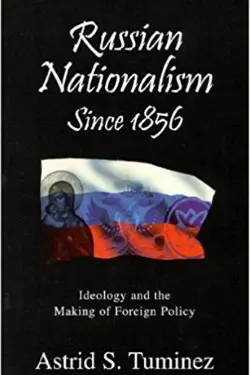
Russian Nationalism Since 1856

- Book
- Foreign policy analyses written by CFR fellows and published by the trade presses, academic presses, or the Council on Foreign Relations Press.
More on:
Many scholars and analysts see Russian nationalism as a dangerous force, but is widespread concern about the malevolent effects of Russian nationalism—especially on foreign policy—justified? What is the record of nation-building in Russia, and how did nationalism evolve in the multiethnic, Russian empire? What variants of nationalist ideology have arisen in Russia, and what are their benign or aggressive implications for foreign policy? What Western actions might help or hinder the impact of aggressive nationalism on Russian international behavior? This thoughtful book answers these questions by exploring the range of nationalist ideas that have been cultivated in Russia since 1856.
Drawing on a wide range of archival documents and unparalleled interview material from the post-Soviet period, Council Fellow Astrid Tuminez assembles a provocative and thoughtful examination of the efforts of Russian nationalism. How two cases—Russian pan-Slavism in 1856-78 and great power nationalism in 1905-14—shows how aggressive nationalist ideas clearly influenced Russian foreign policy and contributed to decisions to go to war.
More on:
 Online Store
Online Store
